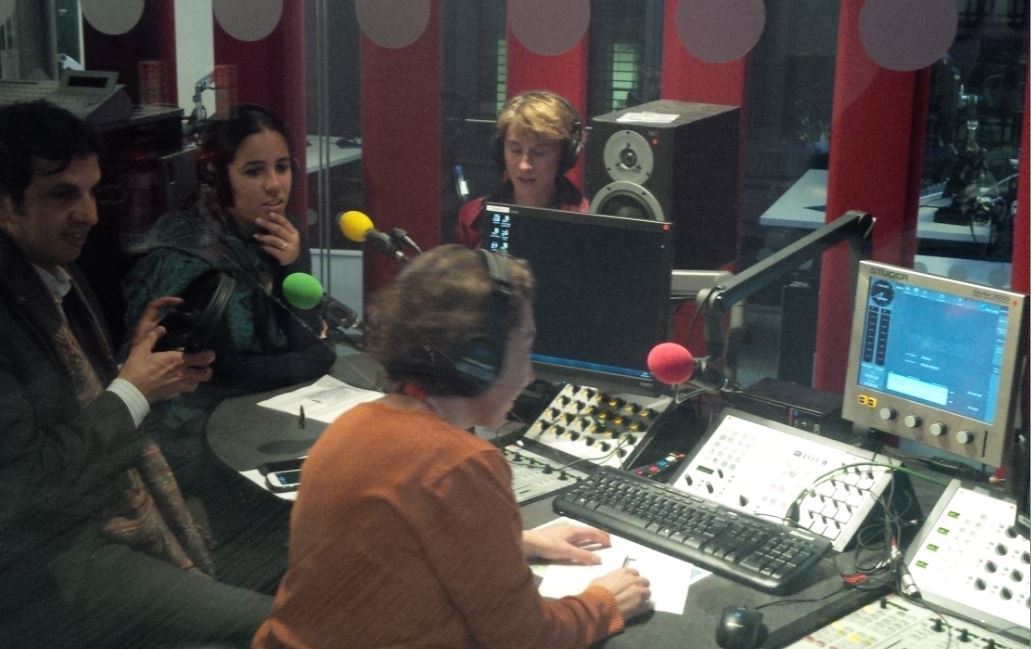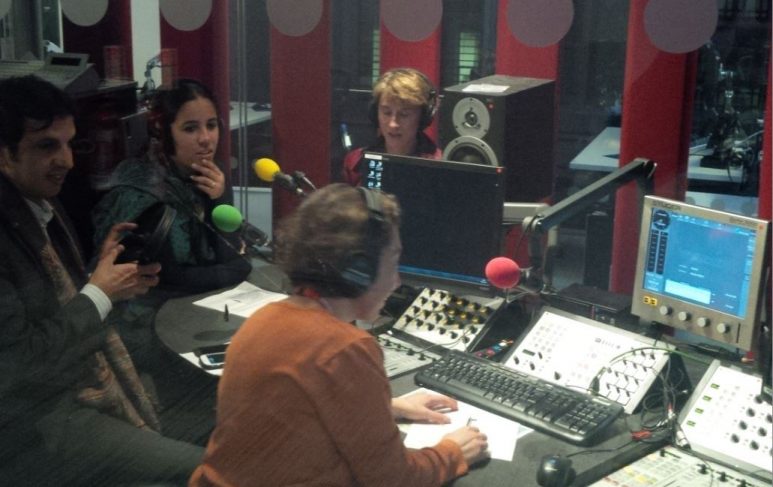Dates: 12-17 March 2013
Region: UK/Morocco


As part of the visit, the Chada FM director, Rachid Hayeg, MDI’s Executive Director, Milica Pesic and MDI’s Project Manager in Morocco, Intissar Rachdi, were participants in the BBC World Service programme – Weekend.
You can listen to the programme here.
The Chada FM director also took part as a guest in the studio for the BBC Arabic programme Extra.

One of the persons interviewed for the vignettes is a shoe cleaner who spends 10 hours on the street every day. He usually cleans shoes in front of cafés and shops. He has done that for the last 34 years. This is what he had to say about media in Morocco:
“I don’t care about what is said in the Moroccan media, because important personalities from those who speak on the radio and the TV advocating human rights and minority group’s rights are the same ones who come to me to clean their shoes without paying for it.”

They voice their wishes on what kind of media they think it would be the best to have in order to objectively and inclusively represent Moroccan society.
14-years old Kawtar has 6 brothers and sisters and lives in a two rooms at a shantytown in the region of Casablanca. One person only is working in this family. She left school because it is far from home and because one of her classmates was raped. She was also discriminated for her physical appearance (dark skin and messy hair). She left school and was sent to Casablanca to work as a maid with a family there. Luckily for her, this was an educated family which supported her in going back to school and takes care of her.
“We poor people hope that media feels our pain and come meet us and see our lives on the ground. They have to see why little girls leave school”, says Kawtar.

“The media is totally absent from my daily life and the suffering of my group, maids. It only remembers us for the international day against the work of minors, as many maids are aged under 18, or when one of us is killed or raped.”
A series of 40 audio vignettes has been produced by Chada FM journalists, while MDI provided training for the producers and reporters of this leading commercial radio station.
The series contributes on the public debate on future of the media in Morocco.
The visit to London was an opportunity for Chada FM journalists, producers & editors, as well as their director, Rachid Hayeg, to learn about British concepts of responsible journalism, self-regulation, ethical codes of conduct, as well as the legal, ethical and financial reasons for inclusive reporting.
During their UK visit the Chada FM representatives met their peers (journalists, editors and decision makers) from British media organisations, including representatives from a number of BBC departments, French Radio London, and Spectrum Radio.
The audio vignettes project as well as the study tour for the Chada FM team is organised by the Media Diversity Institute, a part of a two year programme titled ‘Media Evolution: Towards an Inclusive, Responsible & Independent Media in Morocco’, supported by the European Union Delegation, and UK & Swiss Embassies in Rabat, Morocco.
For more information contact:

 Weekend Programme.wav
Weekend Programme.wav